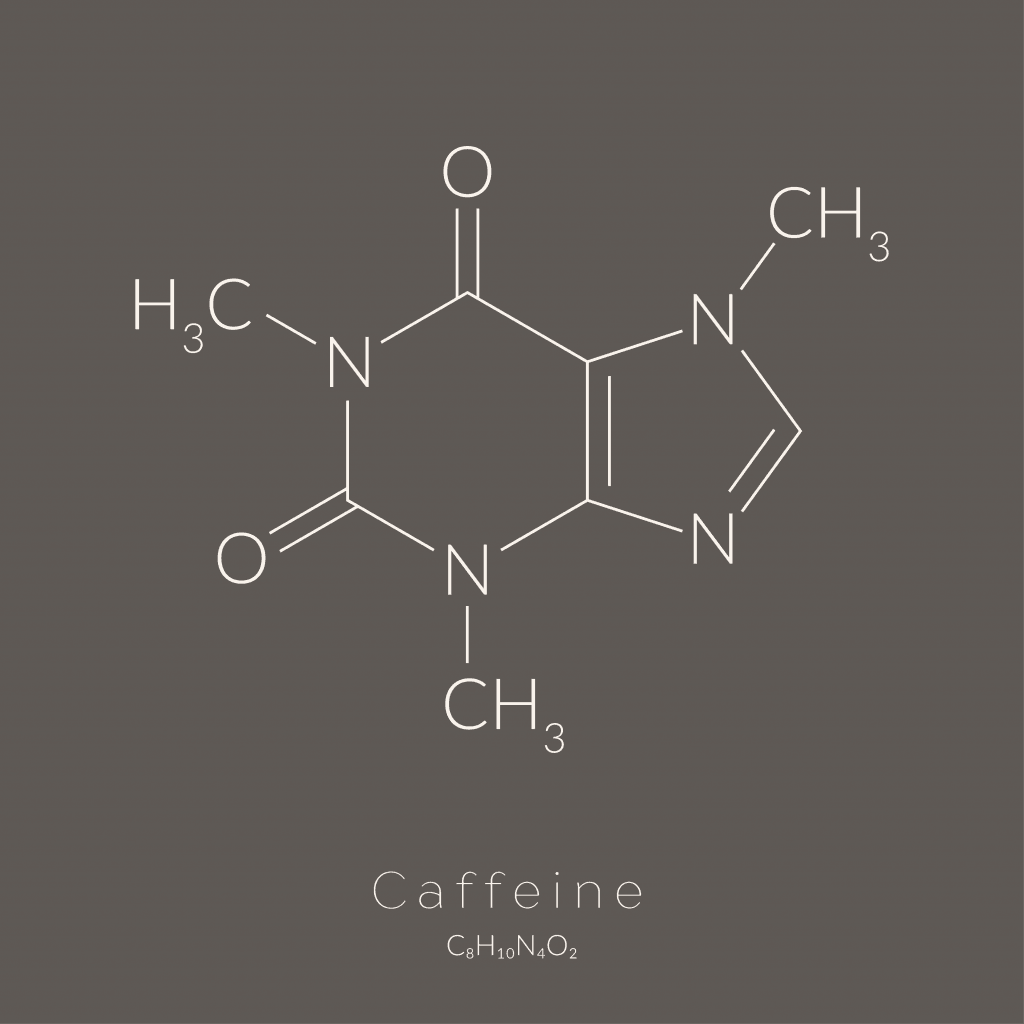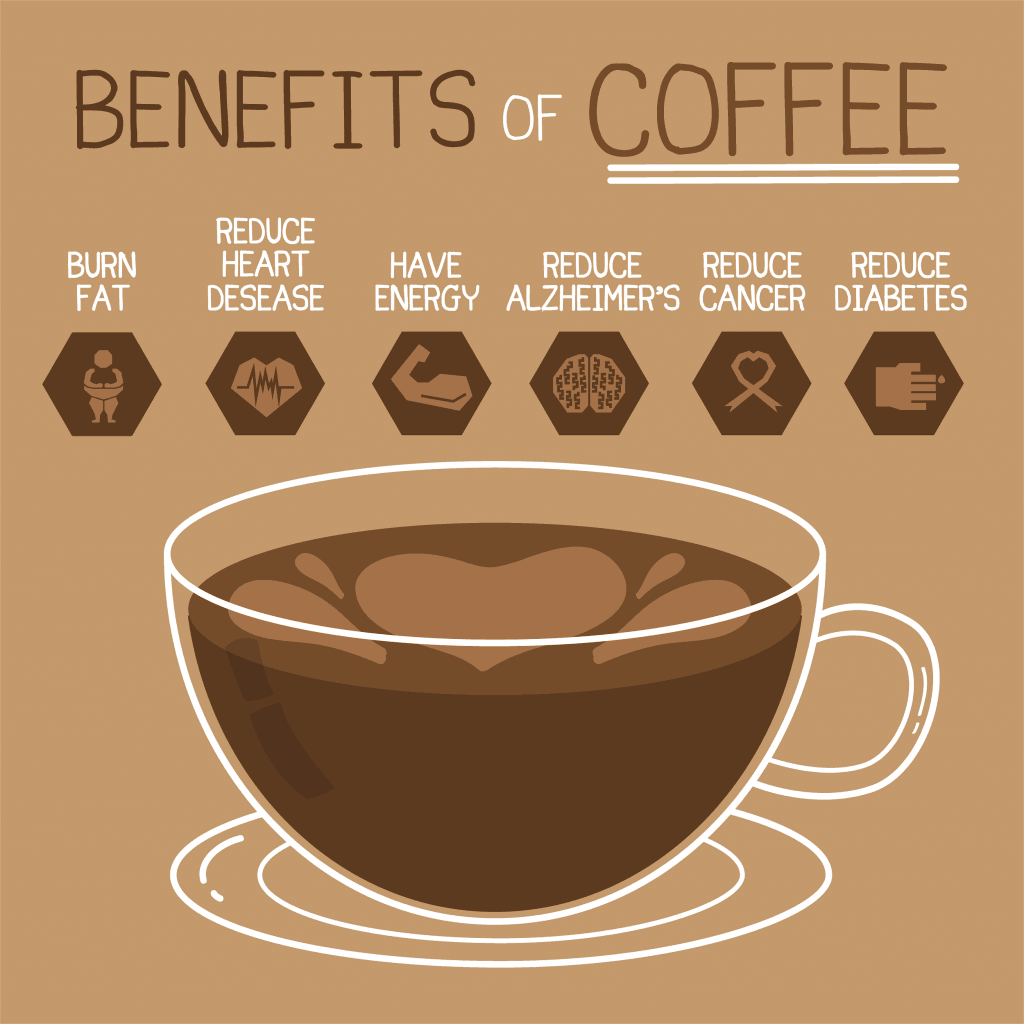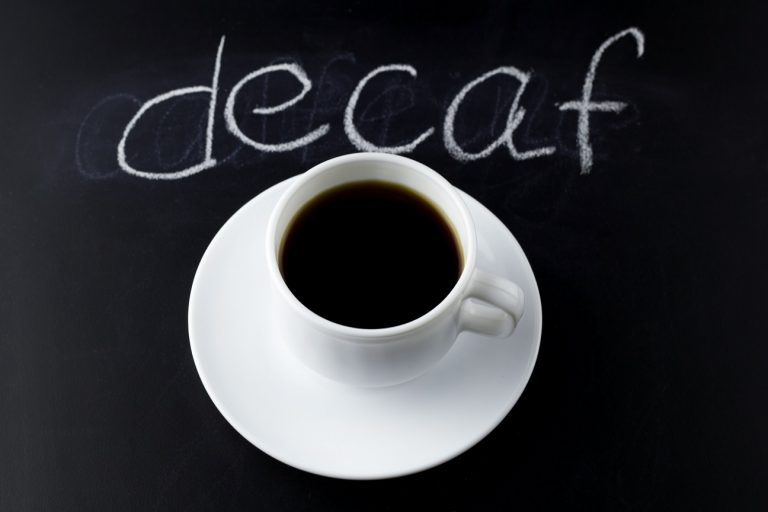Decaf coffee is actually decaffeinated coffee. It is not free from caffeine, but the content of this substance in decaffeinated coffee is 10-20 times lower than in natural ground coffee - it is free of at least 97% caffeine. Read if decaf coffee is healthy and find out how it is made!
What is decaffeinated coffee?
Decaf coffee is available on the market in several types. It differs in the intensity of taste, smell and colour from non-decaffeinated coffee. It is true that the aroma of coffee is most influenced by the roasting process and it is mainly the coffee that determines the qualities of the drink, but decaf coffee is milder, less acidic, less bitter and lighter than coffee with caffeine.
How is decaf coffee made?
Decaffeinated coffee is obtained mainly by three methods. Each of them uses green, unroasted coffee beans that are soaked in a suitable solvent or treated with steam until the pores of the coffee beans open and the caffeine is extracted. Only after the decaffeination process, the coffee beans are roasted.

Decaf coffee - who should drink it?
For most people, drinking 1-2 glasses of coffee with caffeine a day (up to 400 mg of caffeine) is not a problem and may not even affect your well-being.
However, it should be remembered that caffeine tolerance is an individual feature. Different people react differently to the concentration of this active substance. Caffeine has a stimulating effect, improves concentration, reflexes, increases the strength of heart contraction and accelerates metabolism. Prolonged excessive consumption of caffeine (over 500-600 mg) can lead to excessive excitability, anxiety, heart arrhythmias, insomnia and headaches.
Replacing ordinary decaf coffee is recommended for pregnant and lactating women, people suffering from insomnia, anxiety, headaches, irritability, nausea, and above all those with hypertension and kidney disease.
When taking medications, you also need to pay attention to whether they interact with caffeine. There are suggestions in the literature that women of working age should drink less than 300 mg of caffeine per day. Also, people with estrogen dominance should be careful about caffeine, so replacing the morning coffee with a decaf version seems justified.
Decaf coffee is not completely free of caffeine. The allowable amount is 0.1 g/100 g. In most decaf coffee, the caffeine content is lower than allowed by the standards. A glass of natural ground coffee brewed with 7-10 g of coffee contains 120 to 200 mg of caffeine. In a glass of instant coffee prepared with 2.5 g of coffee extract - 65 mg of caffeine, and in a glass of decaffeinated coffee - 4 mg.

Is decaf coffee healthy?
For healthy people who do not have problems with hypertension, insomnia or excessive excitability, coffee drank in moderate amounts (up to 2 glasses a day) is not harmful. Drinking coffee was demonized for decades. Today, however, it is known that coffee helps more than it harms! And for many people, coffee brings only benefits to their health!
Decaf coffee from ordinary coffee differs primarily in its caffeine content. The nutritional value is very similar. There may be slightly less active ingredients in decaf coffee. Do not be afraid of organic solvents used in the processing of decaffeinated coffee beans, as they are eliminated in the production process.
Decaf coffee is a very good source of antioxidants (mainly polyphenols and hydroxycinnamic acid) i.e. substances that inhibit the action of free radicals, cause low-intensity inflammatory processes, damage proteins and DNA, and lead to many diseases.
Analyzing the Western diet, it was found that coffee is the main source of antioxidants. The antioxidant content of decaffeinated coffee can be up to 15% lower than in non-decaffeinated variant.
In decaffeinated coffee, we find small amounts of magnesium, potassium and niacin. One glass of drink covers the body’s need for the individually listed ingredients in an amount of 2 to 5%.






